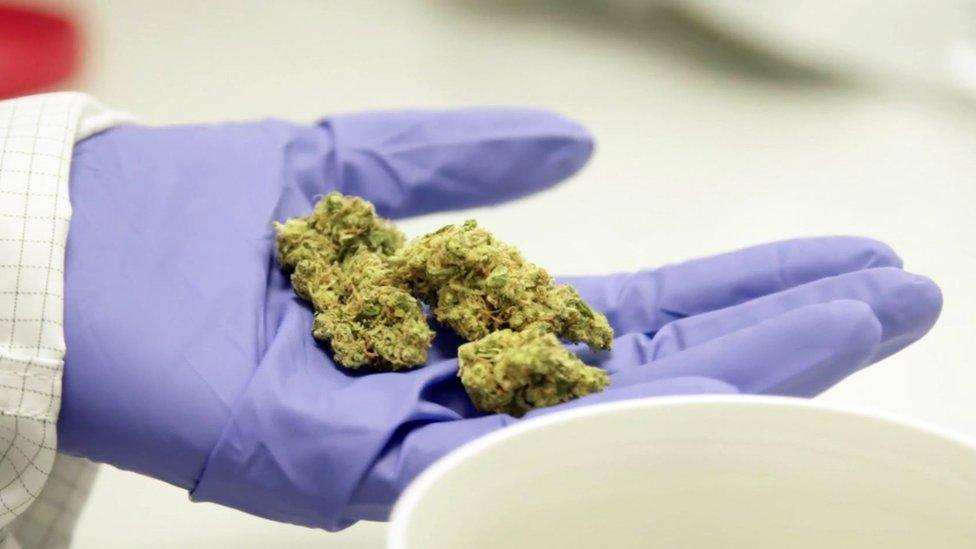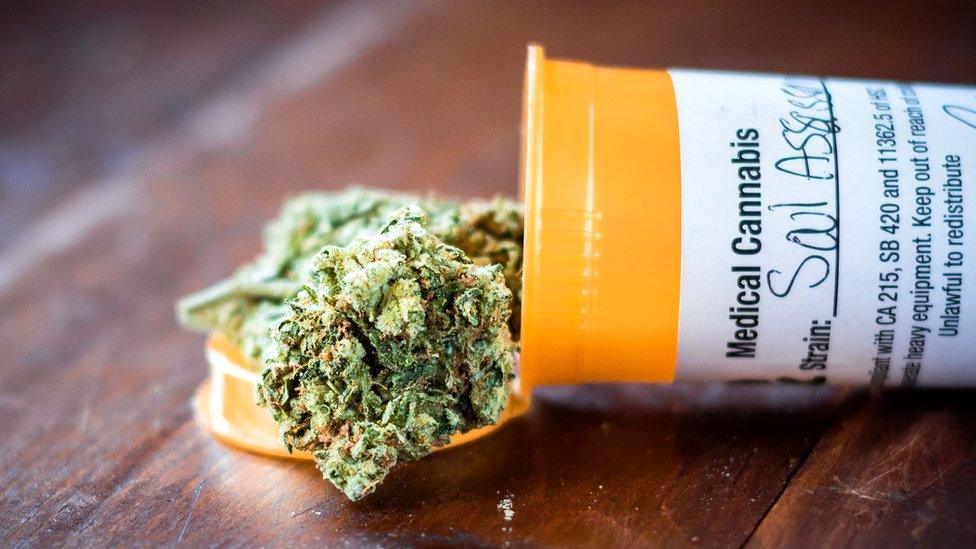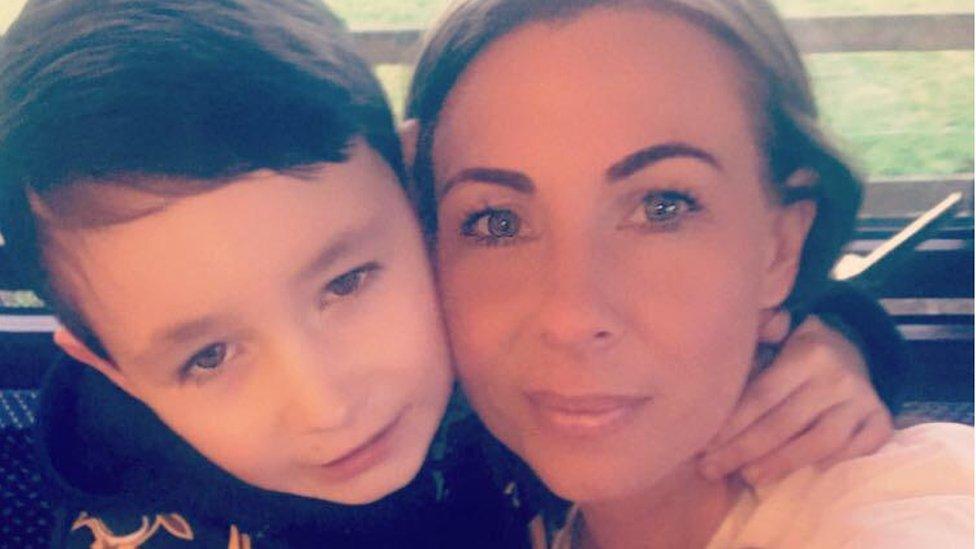Scotland's first medical cannabis clinic approved
- Published

Scotland's first medical cannabis clinic has been approved by regulators.
Sapphire Medical Clinic, located in Stirling, is the first medical cannabis clinic authorised by Healthcare Improvement Scotland (HIS) to provide safe access to medical cannabis for patients in Scotland.
Medical cannabis was legalised in the UK in November 2018, allowing doctors to prescribe it in certain situations.
The clinic will begin by offering virtual appointments.
Face-to-face consultations will follow when Covid restrictions allow.
The clinic was originally due to open in Aberdeen, but will now operate from premises in the central belt.
The Scottish government said it had no influence over prescribing and it was the decision of specialist clinicians to prescribe the drug.
The law change moved cannabis from schedule 1 under the Misuse of Drugs Regulations 2001, external - meaning it had no therapeutic value - to schedule 2.

That category is for drugs which are controlled but have a recognised medical use and can be prescribed in certain circumstances.
Sapphire medical's managing director, Dr Mikael Sodergren, said: "We are delighted to be the first clinic to be registered with HIS, which is a testament to the robust clinical governance framework we have established in evaluating patients for treatment with medical cannabis.
"By capturing clinical outcomes through the UK Medical Cannabis Registry we will significantly contribute to the evidence base and ultimately allow more patients to benefit from medical cannabis as a treatment option."
Cannabis-based medicines can come in the form of whole cannabis flowers, oils or capsules, or a single compound which can be isolated and extracted.
Multiple sclerosis patients and parents of children with severe epilepsy are among those who have been fighting for access to the drugs.

Lisa Quarrell's eight-year-old son Cole has stopped having seizures since taking medicinal cannabis oil
Lisa Quarrell's eight-year-old son Cole has a rare form of severe epilepsy and suffered up to 20 seizures a day before he was prescribed cannabis oil.
His mum, from East Kilbride in South Lanarkshire, originally obtained the medicine from Holland but now has a private prescription.
She welcomed the first Scottish clinic.
She told BBC Scotland: "It won't change my situation as my problem now is purely funding or having it accessible through the NHS. However, it will make it easier for desperate parents to gain access to this wonderful medicine.
"Many parents are being forced to either take the only thing left on offer from NHS Scotland - which is brain surgery - or go against their clinicians to search for a safer solution alone.
"Not only is this still not available on NHS but the clinicians won't even discuss it so parents are terrified to even ask to be allowed to try."
She added: "It is a step in the right direction and it means finally there will be a safe path for scared parents to take."
'A lifeline'
Andie Connolly-Brown, 41, from Edinburgh, suffers with complex PTSD and anxiety.
She has tried a range of conventional therapies. She said: "Having access to medical cannabis is a lifeline for me. My anxiety in particular has been made worse by the Covid-19 lockdown so safe and affordable access to medical cannabis is welcome."
A Scottish government spokesman said: "The scheduling of Cannabis Based Products for Medicinal Use (CBPMs) is reserved to the UK government and the Scottish government has no powers to alter its status. We welcome the UK government's decision to allow doctors on the GMC specialist register to prescribe such products where there is clear published evidence of benefit.
"The decision on whether to prescribe a medicine for a patient, and which medicine to prescribe, is entirely one for the clinician in charge of a patient's care to make, having taken into account the patient's clinical condition and the safety of the patient. This is regardless of whether it is an NHS clinician or a clinician working in a private clinic.
"It is solely a decision for the patient or the patient's carer whether or not to seek private treatment. Where they do so then they are responsible for paying the costs incurred."
Related topics
- Published14 February 2020

- Published18 March 2020
